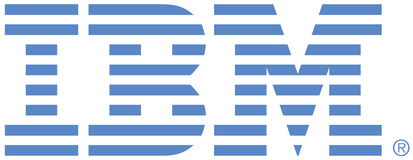
This portal is to open public enhancement requests against IBM Power Systems products, including IBM i. To view all of your ideas submitted to IBM, create and manage groups of Ideas, or create an idea explicitly set to be either visible by all (public) or visible only to you and IBM (private), use the IBM Unified Ideas Portal (https://ideas.ibm.com).
Shape the future of IBM!
We invite you to shape the future of IBM, including product roadmaps, by submitting ideas that matter to you the most. Here's how it works:
Search existing ideas
Start by searching and reviewing ideas and requests to enhance a product or service. Take a look at ideas others have posted, and add a comment, vote, or subscribe to updates on them if they matter to you. If you can't find what you are looking for,
Post your ideas
Post an idea.
Get feedback from the IBM team and other customers to refine your idea.
Follow the idea through the IBM Ideas process.
Specific links you will want to bookmark for future use
Welcome to the IBM Ideas Portal (https://www.ibm.com/ideas) - Use this site to find out additional information and details about the IBM Ideas process and statuses.
IBM Unified Ideas Portal (https://ideas.ibm.com) - Use this site to view all of your ideas, create new ideas for any IBM product, or search for ideas across all of IBM.
ideasibm@us.ibm.com - Use this email to suggest enhancements to the Ideas process or request help from IBM for submitting your Ideas.

One objective that may not have been clear, is to encourage RPG developers to use something other than *DFTACTGRP. Currently many use DFTACTGRP(*NO) and ACTGRP(*CALLER). Which effectively means *DFTACTGRP. Given them something tangible they can easily understand without "learning ILE" could be beneficial to performance and resource scoping. So it would be nice to reconsider the "declined" status.
IBM does not intend to provide a solution to this request at this time, so it is being closed. While the proposed *USER activation group may provide some simplification, there is a work around of using a naming scheme and named activation groups, which will provide similar functionality.
Just to add clarity to the functionality of this request... When a Job is started, it will start 1 or more named activations groups identified as *USER, *USER2, *USER3, etc.
Should the end-user job issue the RCLACTGRP ACTGRP(*USER) command, then activation group *USER would be ended, and upon the next program that uses it, it would be restarted within the job.
The request is specifically for a *USER activation group however a system value of QMAXUSRAG would be nice to allow end-users to establish the number of *USER activation groups to start in each job. For example if QMAXUSRAG = 3, then *USER, *USER2, and *USER3 would be started. There would be no *USER1. This system value would be shipped with a value of 1, but also allow a values of 0 (alternatively *NONE is fine too).
Due to processing by IBM, this request was reassigned to have the following updated attributes:
Brand - Servers and Systems Software
Product family - Power Systems
Product - IBM i
Component - Application Development
Operating system - IBM i
Source - None
For recording keeping, the previous attributes were:
Brand - Servers and Systems Software
Product family - Power Systems
Product - IBM i
Component - Core OS
Operating system - IBM i
Source - None